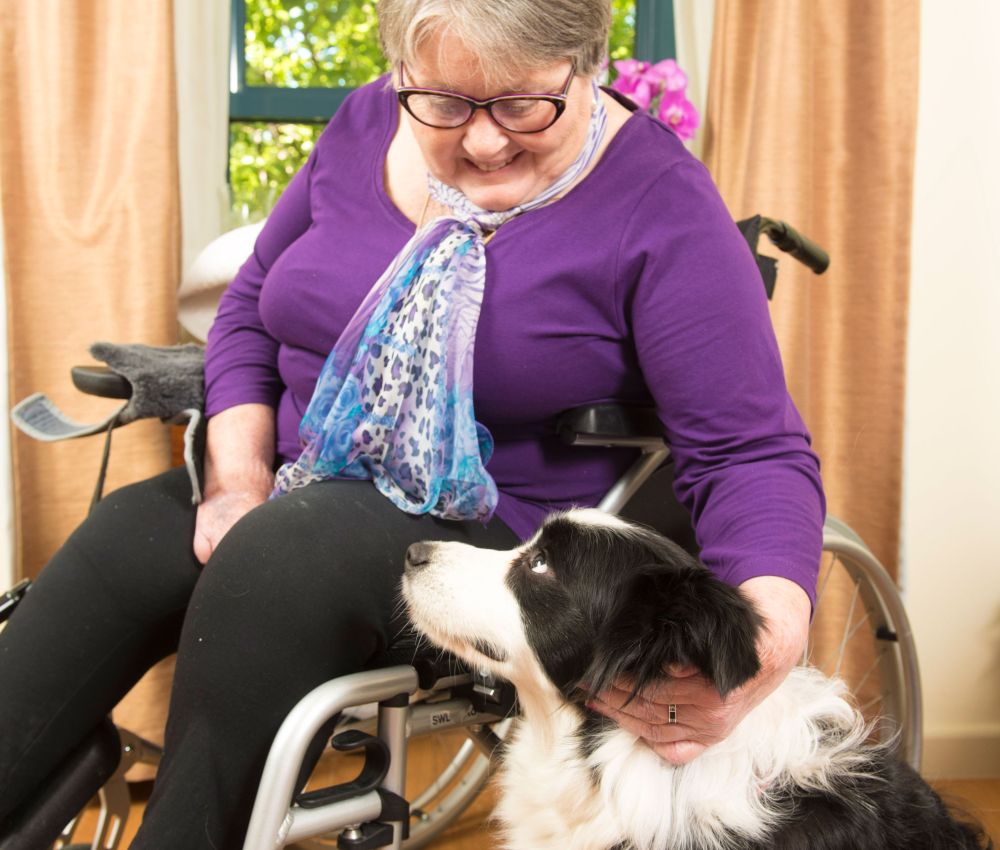Blog
Pet therapy in aged care
In recent years, pet therapy has become increasingly popular in health care settings, including in aged care homes. Pet therapy has been shown to improve both physical and mental health in older people.
What is pet therapy?
Pet therapy involves using animals to improve the mental, physical, and emotional health of a person. Animal-assisted therapy can involve any type of animal, from cats and dogs to horses and birds. The animals are trained to provide comfort and companionship to the elderly, as well as to help them learn skills and become more active.
Benefits of pet therapy
Pet therapy has been found to:
- reduce anxiety and depression
- improve memory and cognition
- increase social interaction.
It can also help to reduce loneliness, as the presence of an animal can provide a feeling of companionship and security, and increase belonging and sharing among the group.
Pet therapy has also been found to have a positive effect on physical health. Studies have shown that pet therapy can reduce blood pressure, improve cardiovascular health, and reduce the risk of falls. It can also provide physical stimulation, which can help to increase mobility and strength, and offer a distraction from the pain or discomfort associated with certain medical conditions.
Visiting pets at Eldercare
While it is not possible to keep pets at Eldercare, family and friends are welcome to bring in animals to visit.
Eldercare also arranges regular visits from Pets for Therapy handlers and their animals, as well as other animal-themed incursions such as horse and carriage rides, hatching chickens, and petting zoos.
Article continues below gallery.
Eldercare volunteer June Brown brings her faithful friends Wally the pug and Billy the poodle to Eldercare The Village in Maitland on Tuesdays, when they share the love by visiting residents in the common room and in private rooms. Residents at the home are also visited by dogs owned by family and friends.
Eldercare wellbeing consultant Jacqui Swearse said the canine visitors make a big difference to residents and help to create a family atmosphere.
She said a woman who recently brought both her parents into live at the home was overwhelmed when she found out they could have dogs come to visit.
“The daughter felt so much happier about it when we told her that dogs come in here,” said Jacqui.
“She had tears in her eyes.”
Eldercare volunteer program coordinator Kylie Maher said canine visitors offered a range of therapeutic benefits and had been a feature of Eldercare homes for many years.
“The dogs allow residents to reminiscence and share their love, bringing smiles and sometimes tears,” said Kylie.
“Residents get to pat and share cuddles and they look forward to having their friendly pooches come back.
“We know the feeling of loneliness subsides when people have one-on-one social support and interactions, and the dogs are additional to this and hugely popular.”
*Text sourced from Daw, M, 2023, ‘Wanted: new besties to share the love’, Yorke Peninsula Country Times, 14 February, p. 16.









